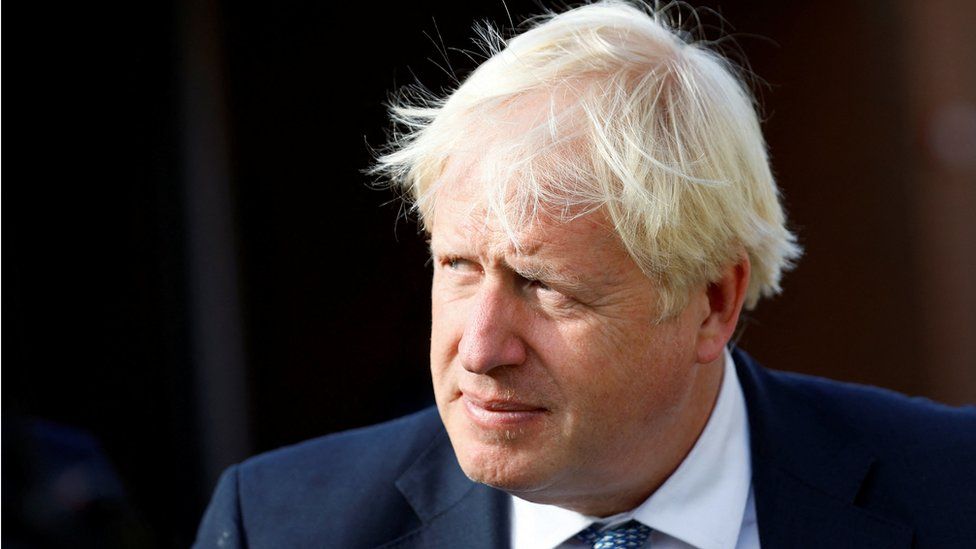
By Becky Morton
Political reporter
The government has until 4pm to hand over Boris Johnson’s unredacted WhatsApp messages and diary entries to the Covid inquiry.
The former PM is among those who will give evidence to the inquiry, which is due to start hearings in two weeks.
The Cabinet Office has given the inquiry Mr Johnson’s messages but with many parts blanked out, or redacted.
The inquiry says failing to release the unredacted material would be a criminal offence.
The material includes 24 notebooks with contemporaneous notes, as well as WhatsApp messages between Mr Johnson and cabinet ministers, advisors and senior civil servants.
Downing Street has said some of the material is “unambiguously irrelevant” to the inquiry, such as personal messages or content not related to the pandemic, and that the inquiry does not have the power to compel the government to disclose it.
It has raised concerns this could set an unwelcome precedent and have a “potential adverse impact on policy formulation in the future”.
However, crossbench peer Broness Hallett, who is chairing the Covid inquiry, said it was her role, not that of the government, to decide what was relevant.
She said passages initially assessed by the Cabinet Office to be irrelevant included discussions between the prime minister and his advisers about the enforcement of Covid regulations by the Metropolitan Police during protests following the murder of Sarah Everard.
She said those redactions had now been removed but “it was not a promising start”.
The government has not officially said how it will respond but Whitehall sources have made clear ministers are confident in their position.
The government is concerned the unredacted messages would reveal personal information and breach privacy requirements.
It could lead to a legal battle between the government and inquiry, with the courts deciding what material is made available.
The inquiry is due to begin public hearings in two weeks time, starting with sessions on the country’s preparedness for a pandemic.
It aims to identify lessons from the government’s handling of the pandemic, looking at issues including the use of lockdowns, the impact of Covid on children and healthcare workers and the protection of the clinically vulnerable.
The former head of the civil service, Lord Kerslake said the Cabinet Office’s position on Mr Johnson’s messages was “misguided”.
The former Labour adviser told BBC Radio 4’s Today programme: “There’s some cover-up going on here to save embarrassment of ministers.
“But there’s also the Cabinet Office fighting for a principle of confidentiality.”
He said it could set a “helpful precedent” if the inquiry won the right to release the material.
“We are in a bit of a mess at the moment, we don’t really know whether WhatsApp’s been used as a decision-making tool or, indeed, as just an information-sharing device,” he added.
The Liberal Democrats said failing to hand over the material in full would “make a mockery” of the process and would be “yet another insult to bereaved families”.
The party’s health spokeswoman Daisy Cooper said: “It looks like Rishi Sunak is too worried about upsetting Boris Johnson and his allies to do the right thing.”
Campaign groups representing bereaved families have said it is “outrageous” that the Cabinet Office thinks it can dictate what material can be released.
Labour has also called for the unredacted material to be released so “those responsible can be held to account”.
A Cabinet Office spokesperson said it was “fully committed” to its obligations to the inquiry and continued to provide all relevant material.
Last week Mr Johnson said he would no longer work with government lawyers for the inquiry, after Cabinet Office officials referred him to the police over further potential rule breaches during the pandemic.
After reviewing Mr Johnson’s official diary as part of the documents to be submitted to the public inquiry, civil servants passed the material to the police.
The Cabinet Office said officials had been obliged to disclose the documents under civil service rules.








